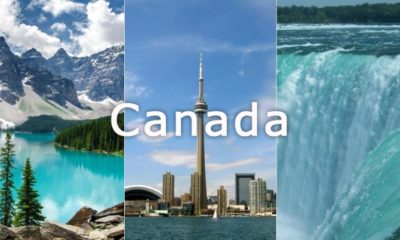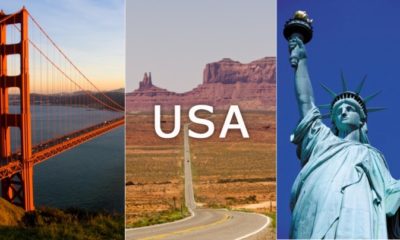North & Central America
Backpacking Mexico Need To Know
Basics
Language:
Capital:
Currency:
| Dial Code:
International Access Code:
Emergency Services Number:
Time Difference:
|
Entry
Citizens of most countries (including all EU countries, The US, Canada, New Zealand and Australia) do not need a visa for stays of less than 180 days, but you do need a tourist card, which you can get on arrival by completing an immigration form available at border crossings or on-board flights to Mexico.
You need a tourist card to leave the country. If you lose your tourist card you can get it replaced at the immigration office at any international airport in Mexico.
Your passport should be valid for the proposed duration of your stay in Mexico.
If you’re travelling to Mexico via the US, even if you’re only transiting, check the US entry requirements with the US Embassy to your country. If you don’t have the correct authorisation you will not be allowed to travel to or transit through the US.
For official information visit your home government travel bureau.
Getting Around
Buses can very occasionally be hijacked. Where possible, travel on first-class buses using toll roads, which have a lower rate of incidents than second and third class buses travelling on the less secure roads. Most first-class bus companies perform security checks when passengers board the bus.
Passengers have been robbed and assaulted by unlicensed taxi drivers including in Mexico City. In Mexico City, use the better regulated ‘sitio’ taxis from authorised cab ranks. At airports, use only authorised pre-paid airport taxi services.
More detail is to come in this section, but you can read about general advice regarding Getting Around When You Get There
Accommodation
Mexico has a wide variety of hostels and you should never have any problem finding one.
The average price of a hostel is 110-220 Pesos (£5-10) a night. Hotels can also be relatively cheap, but vary in quality.
All hostels in Mexico will provide linen and bathroom facilities. Usually there will be internet facilities as well as common and laundry rooms.
Read more about Accommodation When You Get There and Living in Hostels
Food And Health
Restaurants are cheap and cooking facilities in hostels are rare.
Food hygiene and safety is satisfactory, but isn’t up to Western standards. Use your instincts; if the place looks dirty, don’t eat there; if your food isn’t piping hot, don’t eat it.
Water is generally not safe to drink, so it is best to buy bottled or boil and avoid ice in drinks.
Not all hospitals will agree to deal directly with medical insurance companies. You should be prepared to pay for treatment yourself up front and then seek a refund. Make sure you have adequate travel health insurance and accessible funds to cover the cost of any medical treatment abroad and repatriation.
Always contact your GP around 8 weeks before your trip to check whether you need any vaccinations or other preventive measures. Visit here for Recommended Vaccinations and read here for more about Travelling Health In General
Weather & Time To Go
Mexico has several different climates; Mediterranean, arid desert, sub-tropical and tropical. The hurricane season in Mexico normally runs from June to November and can affect both the Pacific and Atlantic coasts, therefore it is best to visit sub-tropical and tropical (i.e. Southern and Caribbean areas) in the dry season; January to May.
Communications
Internet and wifi is widespread and accessible in most hostels. Local pay-as-you-go SIM cards for your mobile phone and international calling cards are cheaply available.
Dangers And Considerations
You should carry photocopies of the relevant pages of your passport and of the ‘Forma Migratoria Múltiple’ given to you on arrival in Mexico at all times.
Crime and violence are serious problems in Mexico, but most victims are Mexicans, many of them involved in criminal activity.
It is not uncommon for thefts to take place when withdrawing cash from ATMs. ‘Express kidnappings’ occur in Mexico; where victims are normally held while criminals empty their bank accounts with cash cards. Once the ransom is paid the victim is usually quickly released.
Be particularly alert on public transport, at airports and in bus stations. Theft on buses is common so keep an eye on your belongings at all times. Women travelling on their own should be particularly alert when travelling on public transport.
The Mexican government makes efforts to protect major tourist destinations like Cancun, Playa del Carmen, Cozumel, Los Cabos and Puerto Vallarta and these areas do not see the levels of drug-related violence and crime experienced elsewhere. Make sure you research your destination thoroughly if travelling off the beaten track.
Don’t become involved with drugs of any kind. Penalties for drug offences are severe. Convictions carry sentences of up to 25 years.
Protests are common, you should avoid all public gatherings and mass demonstrations, as they can sometimes turn violent.
Drink spiking is common – buy your own drinks and keep them within sight at all times.
Water sports equipment may not meet international safety standards and you may not be covered by accident insurance. This applies particularly to scuba diving, parasailing and jet-skiing.
Mexico City and other areas are at high altitude, you may feel a lack of energy, shortness of breath or headaches when you first arrive.
Dangers constantly change. Always check with your foreign office (British Foreign Office webpage) or travel advice bureau for the latest information regarding your destinations safety.
Read more about Safety And Security here
Respecting Culture
When anyone, even a total stranger, sneezes you should always say “salud” (“bless you”) or you will appear rude.
The majority of Mexicans are Roman Catholic. Public displays of affection between same sex couples may be frowned upon.













